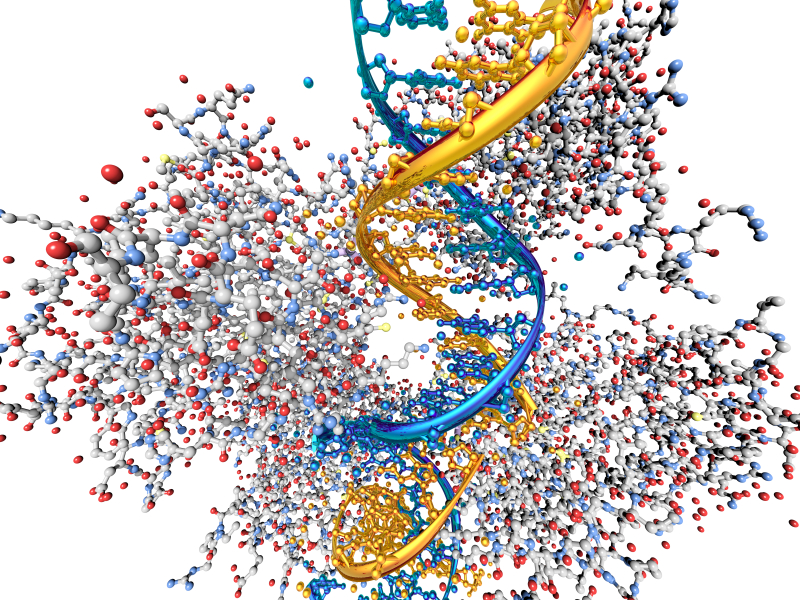
The aim of the research is to develop vaccines for the treatment of allergic asthma. Promising vaccine candidates are produced on the basis of peptide synthesis.
Vaccinations with peptides that can trigger allergies (allergens) help to desensitise the body and prevent allergic reactions. Chemical synthesis of such allergens offers a significant advantage over purification from natural substances: the allergens are available in pure form, which means that unwanted reactions can be avoided. Peptide synthesis is used to produce suitable vaccines against asthma-triggering allergens. As this method is based on replicating the chemical composition (amino acid sequence) of the allergens, this must be known. For this reason, the relevant allergens are analysed in detail as part of the research.
In one part of the research work, all allergens of the fungus Alternaria alternata are characterised. In the case of the house mite, however, the choice falls on the two known main allergens (Der p1, Der p2). These are produced synthetically and serve as the basis for vaccine candidates, which are then characterised in more detail. The same procedure is followed with the main allergen of the cat, Fel d1.
Among the plant allergens, grass and birch allergens are considered to be asthma triggers. Therefore, the grass allergens Phl p2, Phl p5 and Phl p6 are analysed in detail here. In addition, a section of the peptide (the C-terminus) of another grass allergen, Phl p1, is characterised in detail, as this has a significant influence on the vaccination response. Furthermore, the optimal vaccine candidate against the main allergen, Bet v1, is being selected and researched in more detail for a vaccination against birch allergens. Development will continue until the vaccine candidate is available for clinical phase I testing.
The next step in the research and development work is to combine the individual vaccines into a combination vaccine. This will offer sufferers comprehensive and long-lasting protection against a range of asthma-triggering allergens.

Christian Doppler Forschungsgesellschaft
Boltzmanngasse 20/1/3 | 1090 Wien | Tel: +43 1 5042205 | Fax: +43 1 5042205-20 | office@cdg.ac.at

